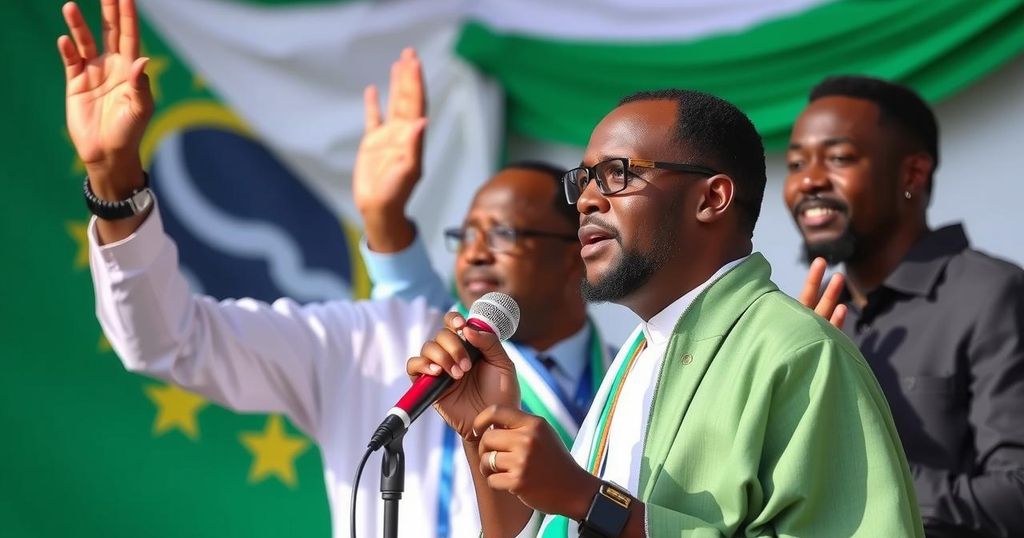Ruling Party Secures Majority in Comoros Parliamentary Elections

In the recent parliamentary elections, Comoros’ ruling party, CRC, won 28 of 33 seats, affirming President Assoumani’s majority. Opposition parties boycotted the election, alleging fraud. Comoros has a history of political instability marked by military coups since its 1975 independence, with Assoumani having been in power for several terms since 1999.
In the recent parliamentary elections held in Comoros, the ruling party, the Convention for the Renewal of the Comoros (CRC), achieved a significant victory by securing 28 of the 33 parliamentary seats. This outcome confirms President Azali Assoumani’s continued dominance in the Indian Ocean archipelago’s political landscape. The official results, announced by the country’s electoral commission, are pending ratification by the Supreme Court. Notably, certain opposition factions chose to boycott the elections, accusing the CRC of previous electoral frauds, casting a shadow over the electoral process.
Comoros is strategically located in the Indian Ocean, consisting of three islands near Madagascar. The nation has a tumultuous political history marked by numerous military coups since its independence from France in 1975. President Azali Assoumani, who originally seized power in 1999, has experienced a controversial political career, having stepped down in 2006 only to reclaim the presidency in 2016. Moreover, in 2018, he enacted constitutional amendments permitting him to bypass term limits and alter an earlier arrangement that mandated the rotation of the presidency among the islands.
The ruling CRC’s substantial gain in seats reinforces its political stability, although the boycott by certain opposition parties raises concerns about the inclusiveness and fairness of the electoral process. Critics have alleged that the elections have been marred by irregularities, further complicating the political scenario in Comoros, a country struggling with governance challenges.
In summary, the ruling party’s victory in the recent parliamentary elections reflects President Assoumani’s sustained influence in Comoros, notwithstanding the opposition’s claims of fraud and electoral misconduct. The upcoming Supreme Court confirmation of the election results will be pivotal in determining the immediate future of the nation’s governance. It remains essential to observe how the political environment will evolve in the wake of these elections and whether the government will address the concerns raised by dissenting parties.
The electoral landscape in Comoros has been significantly shaped by the historical context of political unrest and military coups. Since gaining independence from France in 1975, Comoros has seen multiple changes in government, primarily through force. Assoumani, a former military officer, has played a crucial role in this history, having initially taken power in 1999. His tenure has been marked by controversies, including allegations of electoral misconduct and constitutional changes aimed at extending his presidency beyond traditional limits. The ongoing political dynamics continue to reflect the challenges faced by the island nation regarding democratic governance and political participation.
The electoral victory of the ruling party in Comoros, with 28 out of 33 seats won, underscores President Azali Assoumani’s enduring grasp over the political realm. The election process, however, has been clouded by allegations of fraud and a boycott by opposition factions. As the electoral commission’s results await Supreme Court validation, the implications for the nation’s political stability and governance remain to be seen. The situation calls for vigilance regarding the ongoing political dialogue and the future legitimacy of the administration.
Original Source: www.seattletimes.com






